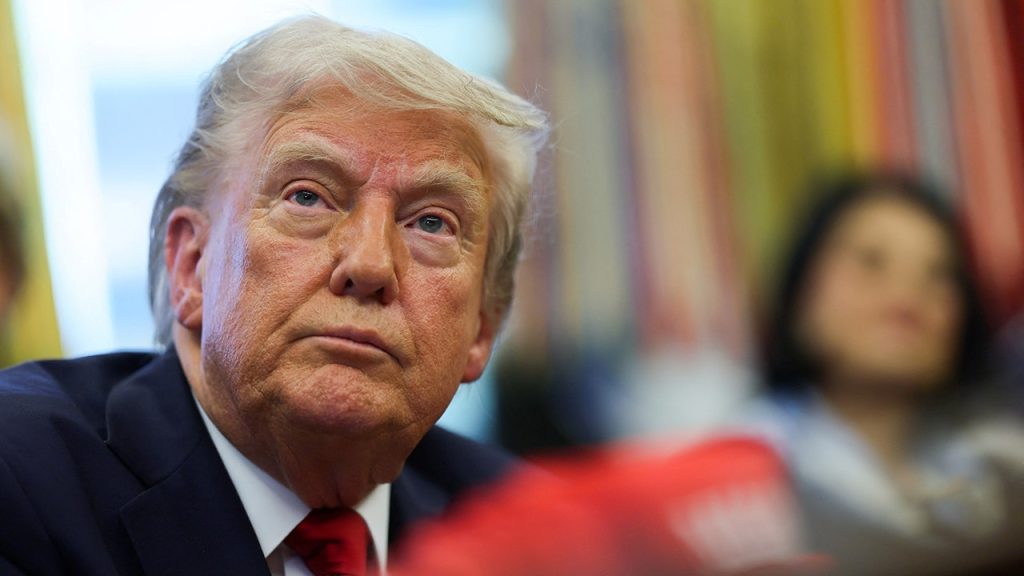A federal lawsuit has been filed by lawyer Mark Zaid, who previously represented a key whistleblower in the impeachment case against former President Donald Trump. The suit alleges that Zaid’s security clearance was revoked as a form of “unconstitutional retaliation” for his role in the case, which centered on allegations that Trump pressured Ukraine into investigating political opponents. The legal dispute raises significant questions about the use of security clearances as political tools and their impact on the rights of individuals to represent clients without fear of retribution.
| Article Subheadings |
|---|
| 1) Background of the Impeachment Case |
| 2) Legal Grounds for the Lawsuit |
| 3) Impact on Legal Representation |
| 4) Similar Actions Against Other Officials |
| 5) Importance of the Court’s Ruling |
Background of the Impeachment Case
The impeachment saga that embroiled Donald Trump began in 2019 when a whistleblower, later identified as former Department of Homeland Security intelligence chief Brian Murphy, filed a complaint against Trump. The complaint accused Trump of leveraging military aid to Ukraine in order to coerce Ukrainian President Volodymyr Zelenskiy into launching investigations into then-presidential candidate Joe Biden and his son Hunter Biden. This incident sparked serious political turmoil, leading the U.S. House of Representatives to vote for Trump’s impeachment on charges of abuse of power and obstruction of Congress. Although formally impeached, Trump was acquitted by the Senate, marking a significant chapter in American political history.
Legal Grounds for the Lawsuit
In his lawsuit filed in the federal court in Washington, D.C., Mark Zaid argues that the revocation of his security clearance was not only retaliatory but also unconstitutional. The lawsuit claims this action violates various legal frameworks, including the Administrative Procedures Act, the First Amendment, and several provisions of the Fifth Amendment. Zaid described the administration’s actions as “dangerous” and indicative of a broader pattern of retaliation against those who oppose or challenge the Trump administration’s policies. Zaid articulated that no individual should face professional repercussions simply for exercising their rights to represent clients or speak out against perceived injustices.
Impact on Legal Representation
The revocation of Zaid’s security clearance raises critical questions about the implications for legal representation in politically charged cases. According to Zaid’s claims, this action poses a significant threat to the integrity of the legal profession, as it could deter attorneys from taking on cases that may contradict the standing administration’s preferences.
“This isn’t just about me. It’s about using security clearances as political weapons,”
Zaid stated, emphasizing the gravity of the situation. If the court were to uphold Zaid’s claims, it could set a precedent reinforcing the importance of free representation and due process in legal matters.
Similar Actions Against Other Officials
The lawsuit highlights a troubling trend during Trump’s presidency of revoking security clearances for various political adversaries. Alongside Zaid, several prominent figures, including former Vice President Joe Biden, former Vice President Kamala Harris, former Secretary of State Hillary Clinton, and former national security advisor John Bolton, have reported the withdrawal of their security clearances. This pattern suggests a concerted strategy implemented by the Trump administration to silence critics and reinforce their authority through intimidation, thus raising serious constitutional concerns.
Importance of the Court’s Ruling
Zaid seeks a ruling from the court that would deem Trump’s revocation decision unconstitutional and restore his access to classified information, which he has held since 1995. The importance of the court’s decision cannot be overstated, as it has implications beyond Zaid’s own situation. A ruling favoring Zaid could help fortify protections for legal professionals who choose to represent clients in politically contentious matters. It could also serve as a significant reminder that security clearances should not be weaponized and that the right to legal representation must remain inviolable.
| No. | Key Points |
|---|---|
| 1 | Lawyer Mark Zaid has sued the Trump administration for revoking his security clearance. |
| 2 | The lawsuit cites unconstitutional retaliation for Zaid’s representation of a whistleblower against Trump. |
| 3 | Zaid argues that security clearances are being misused as political instruments. |
| 4 | Other notable figures have experienced similar revocations of their clearance under Trump’s administration. |
| 5 | The outcome of the lawsuit could set important precedents for legal representation rights. |
Summary
The lawsuit filed by Mark Zaid represents a crucial challenge to the Trump administration’s alleged misuse of power concerning security clearances. It evokes broader questions about the rights of legal professionals and individuals to engage in representation without fear of retaliation. As the case unfolds, it will not only impact Zaid’s career but could also influence how similar cases are managed in the future, reinforcing the need for legal safeguards against political retaliation.
Frequently Asked Questions
Question: What prompts a security clearance revocation?
Security clearances may be revoked for various reasons, including concerns about an individual’s reliability, trustworthiness, and allegiance to the United States. In Zaid’s case, it’s alleged that his clearance was revoked as a direct consequence of his political activities.
Question: How does the impeachment process work?
Impeachment is a formal process by which a sitting President can be accused of misconduct. It requires a majority vote in the House of Representatives to impeach, followed by a trial in the Senate, which requires a two-thirds majority for conviction.
Question: What implications does this lawsuit hold for future legal representation?
The outcome of Zaid’s lawsuit could significantly impact future legal representation, establishing precedents ensuring that attorneys can advocate for their clients without fear of facing professional repercussions due to political motivations.


